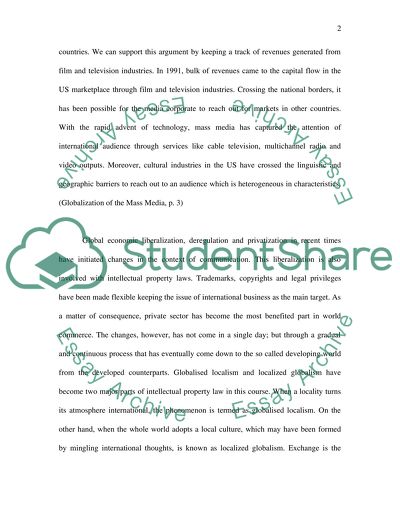Cite this document
(“Globalisation and Mass Media Essay Example | Topics and Well Written Essays - 2500 words - 1”, n.d.)
Globalisation and Mass Media Essay Example | Topics and Well Written Essays - 2500 words - 1. Retrieved from https://studentshare.org/miscellaneous/1550916-globalisation-and-mass-media
Globalisation and Mass Media Essay Example | Topics and Well Written Essays - 2500 words - 1. Retrieved from https://studentshare.org/miscellaneous/1550916-globalisation-and-mass-media
(Globalisation and Mass Media Essay Example | Topics and Well Written Essays - 2500 Words - 1)
Globalisation and Mass Media Essay Example | Topics and Well Written Essays - 2500 Words - 1. https://studentshare.org/miscellaneous/1550916-globalisation-and-mass-media.
Globalisation and Mass Media Essay Example | Topics and Well Written Essays - 2500 Words - 1. https://studentshare.org/miscellaneous/1550916-globalisation-and-mass-media.
“Globalisation and Mass Media Essay Example | Topics and Well Written Essays - 2500 Words - 1”, n.d. https://studentshare.org/miscellaneous/1550916-globalisation-and-mass-media.


